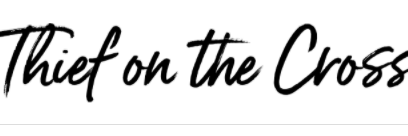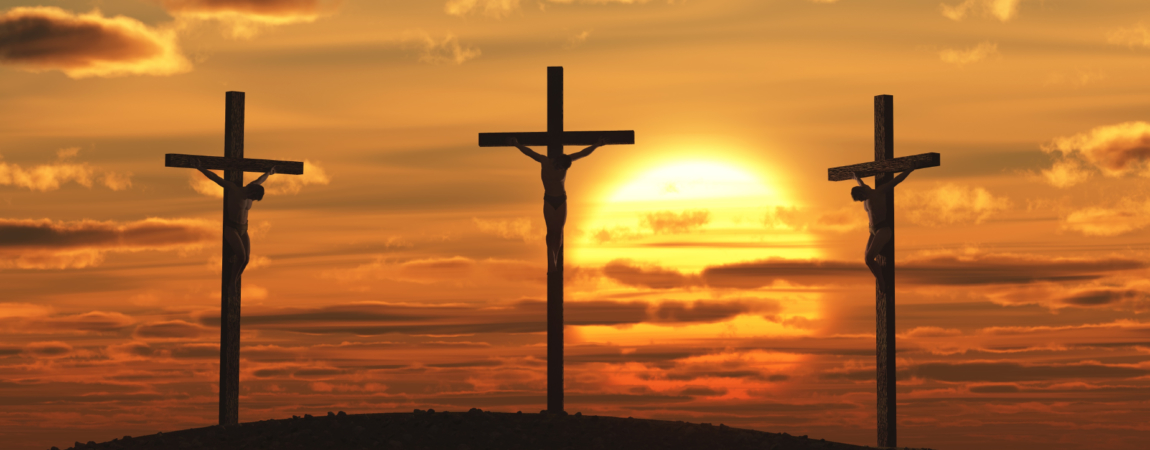Colossians 2:16-17 — What It Does & Doesn’t Say
- This passage is often cited to claim that God’s Holy Days and Sabbath are abolished.
- However, we must carefully examine what Paul actually says, who he is talking to, and what was “nailed to the cross.”
- Paul is warning Gentile believers not to let outsiders judge them in their observance.
- Colossians 2:13 makes clear he is speaking to former Gentiles who were “dead in trespasses.”
- What was “nailed to the cross” was the record of our debt and sins, not God’s Law.
📐 Outline
- A) Who Was Paul Writing To?
- B) What Was Nailed to the Cross?
- C) Let No One Judge You
- D) Substance is of Christ
- E) “Handwriting of Ordinances”-Cheirographon vs Nomos
- F) Paul Condemns Asceticism and Self-Made Religion
- G) Conclusion
A) Who Was Paul Writing To?
We cannot understand Colossians 2:16–17 unless we know who Paul is writing to and what context he’s addressing.
There are only 2 options:
📘 Option 1: Paul is writing to Jewish Believers
- They grew up keeping Sabbath, feasts, and Torah.
- Paul would be warning them against legalistic observance or returning to Pharisaic rituals.
- But Col 2:13 makes this highly unlikely—these were uncircumcised Gentiles.
🌍 Option 2: Paul is writing to Gentile Believers
- They were once pagans, now following Christ.
- They were learning to keep God’s ways—including Sabbath and feasts.
- They were being judged by outsiders for doing so, and Paul tells them not to let that happen.
Colossians 2:13 (NIV):
“When you were dead in your sins and in the uncircumcision of your flesh, God made you alive with Christ.”
Who is “uncircumcised”? Jewish believers or gentile believers?
This clearly shows Paul is addressing Gentile believers who were outside of God’s covenant.
The rest of Colossians 2 only makes sense when read in light of Option 2.
📌 B) What Was “Nailed to the Cross”?
-
- Colossians 2:14 — “…the handwriting of ordinances that was against us… nailed to the cross.”
- The Greek word is cheirographon — a legal debt record or certificate of guilt.
- This is not the same word used for Torah or God’s commandments..
- Jesus erased the charges against us, not the standard of righteousness.
- Paul echoes the same message in Ephesians 2:15 — it’s the hostility “caused by” the law and debt that is abolished
Ephesians 2:15 — What is being “abolished”?
- The target in the sentence is the hostility (ἔχθρα) and the dividing wall between Jew and Gentile (Eph 2:14–16: “broke down the dividing wall… slain the enmity”).
- The phrase νόμον τῶν ἐντολῶν ἐν δόγμασιν (“law of commandments in decrees”) is Scripture’s way of describing decreed regulations that functioned as barriers between the two groups (cf. “dividing wall… enmity,” Eph 2:14–15).
- Paul’s purpose clause is explicit: “that He might create… one new man… making peace… reconcile both… in one body” (Eph 2:15–16).
- Ephesians 2:15 — “Having abolished in His flesh the enmity, that is, the law of commandments contained in ordinances…”
- The Greek here for “ordinances” is dogma (δογμα), not nomos.
- This refers to manmade rules or decrees — not God’s Torah.
- Paul consistently teaches that Jesus abolishes the penalty of sin, the hostility, and the division between Jew and Gentile — not God’s commands which are described as holy and good (Rom 7:12).
✝️ Jesus nailed our sins to the cross, not God’s commandments.
C) “Let No One Judge You” (Colossians 2:16)
Colossians 2:16 — “So let no one judge you in food or in drink, or regarding a festival or a new moon or Sabbaths.”
- This list mirrors God’s appointed times found in Leviticus 23.
- These Gentiles had started keeping God’s appointed days and were now being judged for it.
- Paul did not say “don’t observe” — he said “don’t let anyone judge you” for doing so.
- This affirms that the believers were observing these things and were being criticized.
Point to Consider: “Who judges you for holding on to Christ the most? Those most close to you, in this case other gentiles or gentile family members, not fellow Jewish believers, the passage wouldn’t make sense then. So, essentially other “Pagan’s” were judging newly converted gentile believers as they held to God’s law in their pursuit to be like Christ and obey the covenant that he died for them for.
D) Shadows (foreshadow) point toward the ‘Substance is of Christ’
Colossians 2:17 — “…which are a shadow of things to come, but the substance is of Christ.”
- Paul writes in the present tense: “are a shadow” (not “were”).
- Shadows point to something — they are not evil or abolished, they are pictures of deeper realities.
- These shadows still have meaning because their fulfillment is ongoing — Christ’s return, His reign, etc.
- Paul affirms the value of the Feasts, saying they point us to the Messiah — not away from Him.
- Note: every Feast is about Christ, and the 3 Fall Feasts are specifically foreshadowing Messiah’s return.
- Isaiah 66:23 (about the Sabbath and new moon) specifically relate to end-time restoration.
E) Greek Word Study: Cheirographon vs Nomos
- Cheirographon (χειρόγραφον): a handwritten record of debt or charges — a certificate of guilt. Deuteronomy 31:26
- Nomos (νόμος): the Greek word used throughout the NT for “Law” (i.e., God’s Torah).
- If Paul had meant “Law,” he would have used nomos. He did not.
- This strongly supports the interpretation that Paul is talking about our sin-debt being nailed to the cross, not the Law of God.
F) Paul Warns Against Man-Made Rules
- Rebuking of “the world”: This is a rebuke of Gnostic or philosophical asceticism, which was prevalent in Colossae at the time where some people were saying to be ultra-spiritual you needed to be like a monk at practice extreme ascetism, such as extreme self-denial not Leviticus or Exodus. Paul was also condemning Gnostic ideas and teaching
- Colossians 2:8 — “See to it that no one takes you captive by philosophy and empty deceit, according to human tradition…”
- Colossians 2:20–22 — “Why do you submit to regulations — ‘Do not handle! Do not taste! Do not touch!’ … according to human precepts and teachings?
- Paul is not speaking to observant Jews freeing them from the “burden” of God’s law. He is encouraging Gentile believers who had begun walking in God’s ways to stand firm, and not let others disqualify them because of it.
He is saying:
- “Don’t let anyone judge you for keeping God’s laws.”
- “Don’t let anyone impose man-made rules on you.”
- “Your new obedience is rooted in Christ, not condemned by Him.”
Point to Consider: How can Paul in Romans 7:12 call the law “eternal, holy, and delightful” and at the same time condemn or advocate its abolishment? Such a view point is not faithful to this text, the context or the covenant when scrutinized. Perhaps, its one’s interpretation of this passage that needs to be studied to understand what’s going on in Colossae and its impact on these new gentile believers for these passages (and the bible) to make sense. Scripture must be consistent and Colossians 2 defends God’s commandments now that were in Christ, not abolishing them. The external has gone to the internal out of gratitude for Christ.
G) Timeline Proof: Feasts and Sabbaths Were Still Kept After the Cross
- Acts 13:14 — Paul went to the synagogue “on the Sabbath day.”
- Acts 18:21 — Paul hurried to be in Jerusalem “for the Feast.”
- Acts 20:6,16 — References to keeping “Unleavened Bread” and being in Jerusalem “for Pentecost.”
- Acts 24:14 — Paul says, “I worship the God of our fathers, believing all things written in the Law and the Prophets.”
- Acts 25:8 — Paul declares, “I have committed no offense against the law of the Jews.”
- Zechariah 14:16–19 — Prophecy that the nations will worship in the Kingdom by coming up yearly to keep the Feast of Tabernacles.
- Isaiah 66:22–23 — In the New Heavens and New Earth: “From one Sabbath to another… all flesh shall come to worship before Me.”
Conclusion: Don’t Remove What God Has Not Removed
- Colossians 2:13 shows Paul was writing to Gentiles who had just become part of Israel by faith: “You who were dead in your sins and the uncircumcision of your flesh…”
- They began keeping God’s appointed times and were mocked or judged for it.
- Paul tells them: Don’t let manmade religious authorities judge you — because these things belong to Christ.
- God’s calendar is not abolished, it is fulfilled in Christ and continues as a sign and rhythm of worship (Lev 23, Heb 4, Isa 66).
Colossians 2 is a defense of Biblical observance — not a permission slip to discard God’s instructions.

